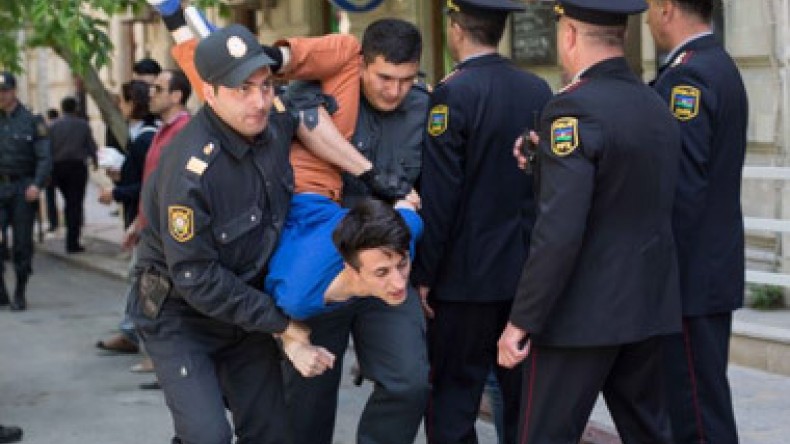
HRW: After Azerbaijan took chair in Committee of Ministers of Council of Europe 11 activists have been convicted
It’s time for the International partners of Azerbaijan to hold the red line. The European Parliament and the PACE called on Baku to stop repression and release all those that are illegally detained. Now the leaders of the Council of Europe must adequately respond to everything that happens and use every opportunity to encourage Baku to be responsible. This is stated in the article of Veronica Goldston, published on the website of the international human rights organization Human Rights Watch.
As noted in the material CE should suspend negotiations on a strategic partnership with Azerbaijan and to make clear that any progress in relations is possible only after the release of those convicted and stop the harassment of the civil society. It's the least that the journalist Khadija Ismayilova and her colleagues can count on.
The depiction by Azerbaijan’s foreign minister of summer 2014 “as a particularly dark time” in an October 2 speech at the Council of Europe couldn’t have been more fitting to describe the state of human rights in his own country. While he was referring to the Ukraine crisis, it’s hard to imagine that anyone in the room – except apparently the minister himself – could have been oblivious to its eerie relevance for Azerbaijan.
As it is noted in the article, in recent months, the government’s growing suppression of criticism has escalated into a full-blown assault. Just since Azerbaijan assumed its role in the rotation as Council of Europe chair in mid-May, at least 11 activists have been arrested and at least 9 others convicted and sentenced to prison terms on politically motivated charges. Among those arrested – within days of each other, between July 30 and August 8 – are some of the country’s most prominent human rights activists: Leyla Yunus, her husband, the historian Arif Yunus, Rasul Jafarov and.
In addition to politically motivated arrests to clamp down on critics, the government has used restrictive new laws regulating nongovernmental organizations and other tactics to silence independent groups. It has cut off funding by freezing the bank accounts of organisations refusing them the authorisation to register new grants. As a result, many groups have been effectively forced to shut down. Among them is the leading media monitoring group, Institute for Reporters’ Freedom and Safety.
Newsfeed
Videos






























